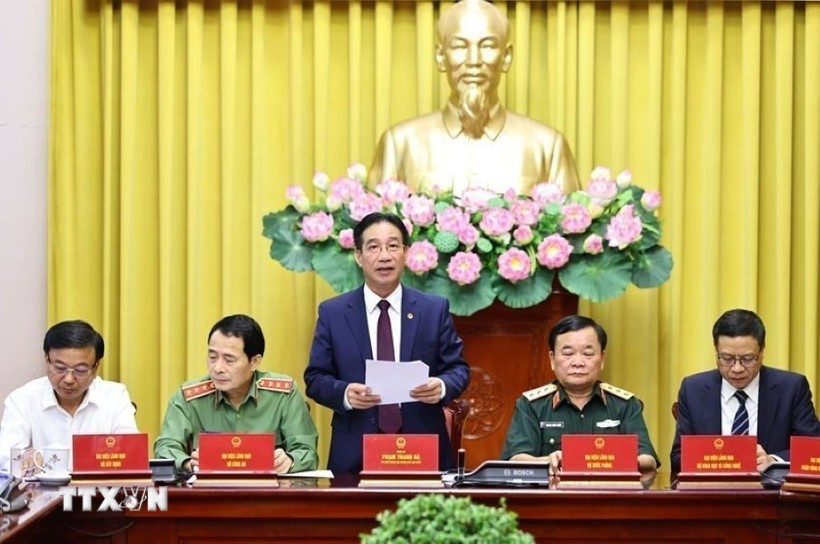
On the afternoon of July 11, at the Presidential Palace, the Office of the President held a press conference to announce the President's Order promulgating 9 Laws passed by the 15th National Assembly at the 9th Session.
The nine Laws include: Law on Digital Technology Industry; Law on amending and supplementing a number of articles of the Law on Technical Standards and Regulations; Law on amending and supplementing a number of articles of the Law on Product and Goods Quality; Law on Atomic Energy; Law on Science, Technology and Innovation; Law on amending and supplementing a number of articles of the Law on Credit Institutions; Law on Personal Data Protection; Law on Participation in the United Nations Peacekeeping Force; and Law on Railways. Chairing the press conference were members of the Party Central Committee: Deputy Minister of National Defense, Senior Lieutenant General Hoang Xuan Chien; Deputy Minister of Public Security, Senior Lieutenant General Le Quoc Hung.
Co-chairing were: Deputy Head of the Office of the President Pham Thanh Ha; Deputy Head of the National Assembly's Committee on Science, Technology and Environment Nguyen Phuong Tuan; Deputy Head of the National Assembly's Committee on Security, Defense and Security Nguyen Quoc Hung; Deputy Minister of Science and Technology Le Xuan Dinh; Deputy Minister of Construction Nguyen Danh Huy; Deputy Governor of the State Bank of Vietnam Pham Quang Dung.
Perfecting the legal corridor for digital technology industry, standards, and quality of goods and products
The Law on Digital Technology Industry consists of 6 chapters and 51 articles. The development of the Law aims to form a specialized legal corridor, ensuring strong and outstanding incentive policies for the development of the digital technology industry - one of the specific and fundamental industrial fields; making Vietnam one of the digital technology industry centers of the region and the world; developing a number of strategic digital technology enterprises and a number of digital technology industry fields in which Vietnam has strengths such as semiconductors and artificial intelligence; creating breakthroughs in the development of science, technology, innovation and national digital transformation. Vietnam has become the first country in the world to promulgate a separate law on the digital technology industry.
For the first time, new concepts such as digital technology, digital technology industry, semiconductor industry, artificial intelligence, digital assets, etc. are identified in a legal document. The law includes full regulations, incentives, and necessary support to develop the digital technology industry.
The Law amending and supplementing a number of articles of the Law on Standards and Technical Regulations consists of 3 articles. The Law has added regulations on the National Database on standards, measurements, and quality, creating a digital platform to improve the effectiveness of state management, in the direction of promoting post-inspection instead of pre-inspection, cutting administrative procedures and compliance costs for businesses.
The amendment and supplement to the Law aims to institutionalize the Party's guidelines and policies and the State's policies in the field of standards and technical regulations, enhance the effectiveness and efficiency of State management activities on standards and technical regulations, ensure the consistency and uniformity of the legal system; at the same time, absorb and internalize international commitments, ensure compatibility between legal provisions on standards and technical regulations and assessment of conformity with new-generation free trade agreements that Vietnam has signed.
The Law amending and supplementing a number of articles of the Law on Product and Goods Quality, consisting of 3 articles, has comprehensively innovated the method of managing product and goods quality according to major orientations such as converting the quality management model according to risks; clearly defining the principles of quality management appropriate to each level of risk; regulating the reduction of administrative procedures for imported goods; applying digital technology, artificial intelligence and big data in supply chain management. Notably, for the first time, the Law establishes a legal framework on the National Quality Infrastructure (NQI), which is an ecosystem including standards, measurement, conformity assessment (including workers), inspection and policy development.
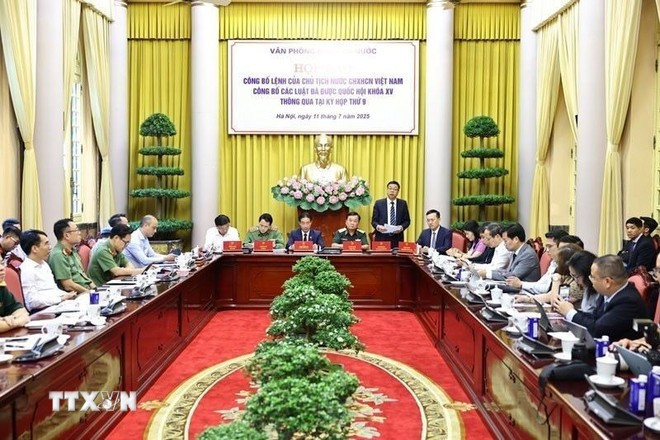
This is the country's technical infrastructure to meet the requirements of domestic socio-economic development, promote international recognition to support businesses to participate in the global supply chain of products, goods and services.
The State will invest in building a national quality infrastructure based on digital technology and artificial intelligence, ensuring connection and data sharing between quality control agencies, customs, traceability, consumer feedback and international warnings to improve monitoring and early warning capacity. These three laws will all take effect from January 1, 2026.
Institutional breakthroughs for railways, nuclear energy and science and technology
The Railway Law consists of 4 chapters and 59 articles. The Law has new, "breakthrough" regulations for railway investment and development, including promoting decentralization from the Prime Minister to the Minister and from the Government and the Ministry to local authorities according to the motto "locality decides, locality does, locality is responsible" to promote local initiative and creativity in investing in the development of the railway system, especially local railways.
The promulgation of the Railway Law aims to institutionalize the Party's guidelines and viewpoints, especially the "strategic quartet" to develop the railway infrastructure, industry and transport system to meet the requirements of industrialization and modernization of the country; at the same time, to resolve difficulties and inadequacies arising in the practice of investment, development and business of railway transport in recent times.
The 2025 Law on Atomic Energy consists of 8 chapters and 73 articles; closely following 4 policies: promoting the development and socialization of atomic energy applications; ensuring radiation safety, nuclear safety and security, decentralization in state management; facilitating nuclear inspection activities; managing radioactive waste, spent radioactive sources and spent nuclear fuel; responding to radiation incidents and nuclear accidents; civil liability for nuclear damage. Accordingly, the Law has regulated the development and application of atomic energy; radiation safety, radiation protection, nuclear safety and nuclear security; nuclear power plants, research nuclear reactors; responding to radiation incidents and nuclear accidents, compensation for radiation damage and nuclear damage; nuclear inspection and state management in the field of atomic energy.
The laws take effect from January 1, 2026.
The Law on Science, Technology and Innovation consists of 7 chapters and 73 articles; creating a legal corridor for science, technology and innovation to contribute to enhancing national competitiveness, contributing to socio-economic development, ensuring national defense and security, improving people's quality of life and human development.
Notably, the Law has strongly innovated in management thinking, from controlling processes and inputs such as invoices and detailed documents to managing results and output efficiency, accepting risks associated with risk management. At the same time, it establishes a clear direction on the transition from a country that mainly uses core technology to mastering strategic technology. The Law takes effect from October 1, 2025.
Improving laws on peacekeeping, personal data and credit institutions:
The Law on Participation in United Nations Peacekeeping Forces consists of 5 chapters and 27 articles; effective from January 1, 2026.
The promulgation of the Law aims to institutionalize the Party's guidelines and policies, the provisions of the Constitution, the State's policies and laws, ensure consistency in the legal system, and compliance with the United Nations Charter and international treaties to which Vietnam is a member; create a complete, solid, long-term, and stable legal corridor for the deployment of forces to participate in United Nations peacekeeping operations; and contribute to enhancing Vietnam's position and prestige in the international arena.
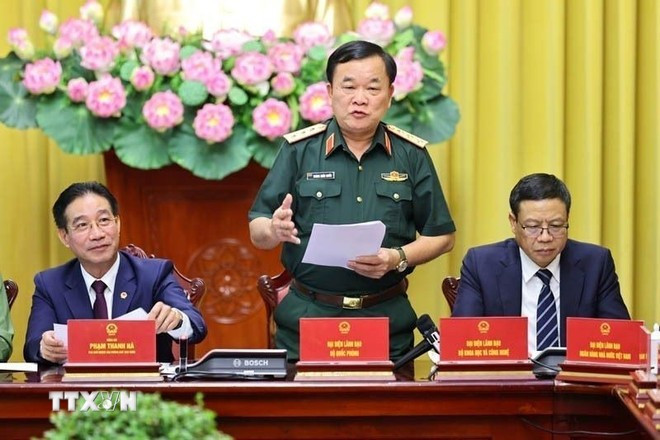
The Law stipulates that Vietnamese forces participating in United Nations peacekeeping operations include: armed forces, civilian forces (officials, civil servants, and public employees). The Government unifies state management of participation in United Nations peacekeeping operations. The Ministry of National Defense and the Ministry of Public Security preside over and coordinate with ministries and branches responsible to the Government to implement state management of participation in United Nations peacekeeping operations.
May 27th of each year is the traditional day of the Vietnamese forces participating in the United Nations peacekeeping operations. The Law amending and supplementing a number of articles of the Law on Credit Institutions consists of 3 articles; built and promulgated in the spirit of closely following the viewpoints, policies and guidelines of the Party and the laws of the State; ensuring constitutionality, legality and consistency with relevant legal documents; in accordance with international treaties to which Vietnam is a member as well as international practices, ensuring the goal of international integration, in line with development trends.
The amendment of the authority to decide on special loans ensures timely, strict, effective and feasible implementation, contributing to maintaining the security and safety of the credit institution system, preventing negativity, loss, waste and violations of the law.
Notably, the Law regulates the State Bank's authority to decide on special loans with an interest rate of 0%/year, without collateral, to ensure complete decentralization and delegation of authority to the State Bank, and timely liquidity support for credit institutions through special loans; regulations on the right to seize collateral; regulations on the seizure of collateral; and the return of collateral as evidence in criminal cases. The Law takes effect from October 15, 2025.
The Law on Personal Data Protection consists of 5 chapters and 39 articles; it is built to perfect and unify the legal system on personal data protection, create a legal corridor for personal data protection, improve the capacity to protect personal data for domestic organizations and individuals to reach international and regional levels; promote the legal use of personal data to serve socio-economic development.
Notably, the Law stipulates that personal data subjects have 6 rights to their personal data, including important rights in establishing a legal basis for personal data processing activities of relevant organizations and individuals such as: the right to know, the right to consent or disagree, the right to withdraw consent...
Along with that is the right to view, edit or request editing, request provision, deletion, restriction of processing, or objection to processing of personal data. When rights are violated, personal data subjects have the right to complain, denounce, sue, and request compensation for damages. The law takes effect from January 1, 2026.
According to Diep Truong (TTXVN/Vietnam+)
Source: https://baogialai.com.vn/hop-bao-cong-bo-lenh-cua-chu-tich-nuoc-ve-9-luat-post560260.html




![[Photo] Dan Mountain Ginseng, a precious gift from nature to Kinh Bac land](/_next/image?url=https%3A%2F%2Fvphoto.vietnam.vn%2Fthumb%2F1200x675%2Fvietnam%2Fresource%2FIMAGE%2F2025%2F11%2F30%2F1764493588163_ndo_br_anh-longform-jpg.webp&w=3840&q=75)



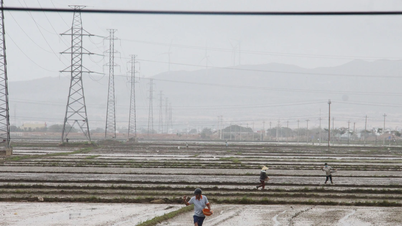
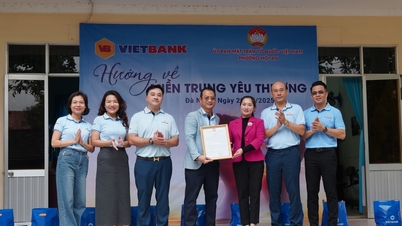



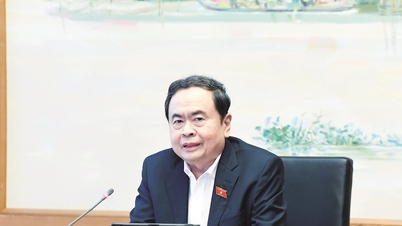

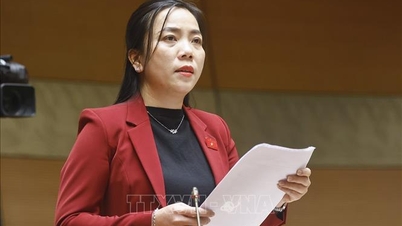



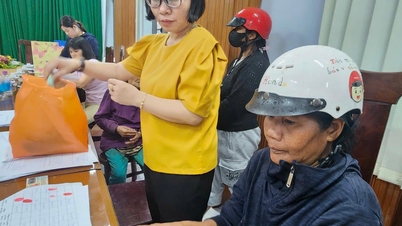





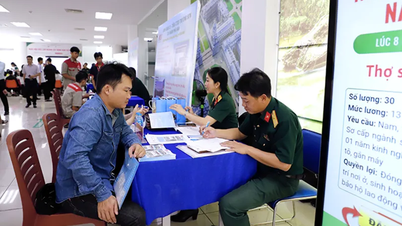


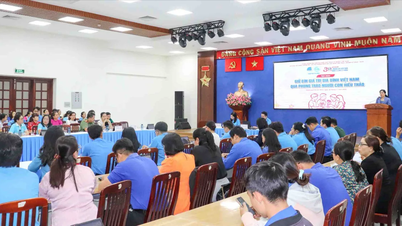


















































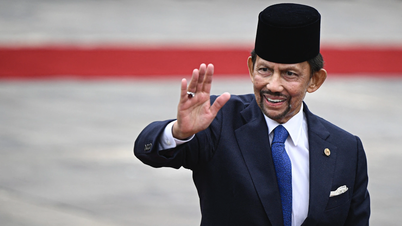










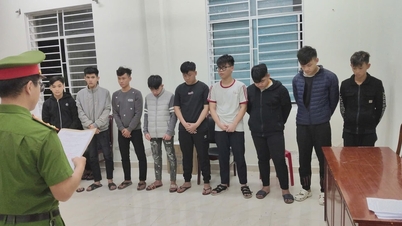











Comment (0)